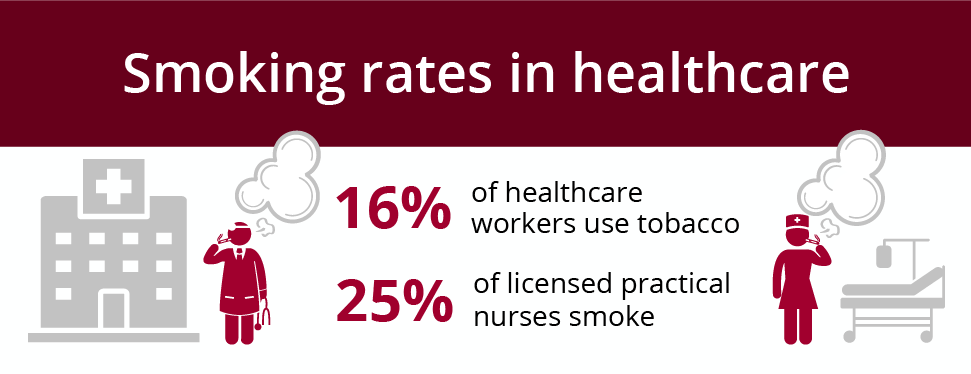Every day, those who work in healthcare see the effects of addiction, including smoking. From chronic bronchitis to lung cancer, the outcome of tobacco use is front and center—yet many of these same health professionals still take time out for smoke breaks.
Why do people who understand all the risks of smoking continue to do it? When you understand the addictive nature of tobacco, it’s easier to grasp why many can’t just quit. (Learn more in our blog Why Don’t People Just Stop Smoking?)
Here are some key factors, along with insights on how to help tobacco users in healthcare quit for good.
Smoking Cessation and Smoking in Healthcare
According to the Centers for Disease Control (CDC), 16% of healthcare workers use tobacco. Women have a higher rate of smoking—nearly 12% among female healthcare workers in the U.S., and among licensed practical nurses specifically, the rate is 25%.
Keep in mind these numbers come from before the pandemic. Throughout COVID-19, stress and anxiety among healthcare workers has soared. Not surprisingly, 38% of healthcare workers surveyed said they found themselves more likely to smoke, drink, or use substances to cope.
Much like those in the general population, quitting smoking can be challenging, especially if they’re using tobacco as way to de-stress. Taking a smoke break outside, particularly with fellow healthcare workers, may be seen as a form of “self-care,” even if it has potentially serious health ramifications.
Why This Matters
The issue of health impact, both short-term and long-term, looms large for these tobacco users, especially nurses. Since women make up 88% of the profession, that means most are at risk for complications that are specific to women:
- Lung cancer is the leading cause of cancer death among women.
- Women who smoke have 12X the risk of dying from lung, trachea, and bronchus cancers compared to women who never smoked.
- About 62,000 women die each year of smoking-related cardiovascular diseases.
- Women who smoke are more than twice as likely as nonsmoking women to have a heart attack.
For both women and men, tobacco use can also impact absenteeism and cause lower productivity—a major concern, considering there’s already a staffing shortage for many healthcare organizations. According to research, more RN jobs will be available through 2022 than any other profession in the country. Having nurses out sick due to smoking-related causes can exacerbate the problem.
Another potential downside to smoking among healthcare workers is how it affects patient care, according to research that looked at smoking prevalence. Those researchers noted that nurse-led interventions for smoking cessation among patients increase the chance of successful quitting by 50%, but that the main barrier in achieving that goal is the nurses’ own smoking behavior.
What Smoking Cessation Solution Can Reduce Smoking in Healthcare?
Employers in the healthcare space are taking a variety of tactics to address tobacco use, with mixed results. Some have taken a very strong stance by using cotinine testing prior to hiring and refusing to hire smokers.
Others, such as Ballad Health, test for tobacco use, but then use it as an opportunity to provide support. (Is one better than the other?
For example, the EX Program partners with healthcare organizations such as Charleston Area Medical Center and McLeod Health to address the unique needs of tobacco users in today’s environment through an evidence-based program.
The EX Program provides:
- Convenient and discreet synchronous support from tobacco treatment experts via live chat
- Quit medication that’s delivered right to the participant’s home after chatting with a tobacco treatment expert
- 24/7 support from peers in our thriving EX Community. Within in the community, the average response time is 12 minutes to a post; the average number of responses is 12.
Smoking cessation and smoking in healthcare can be complex—overcoming tobacco addiction is hard—and that is why relying on an experienced cessation partner is key.
Contact the EX Program to see a demo of our digital health program for tobacco addiction, and let’s work together to help healthcare workers live healthy lives.






